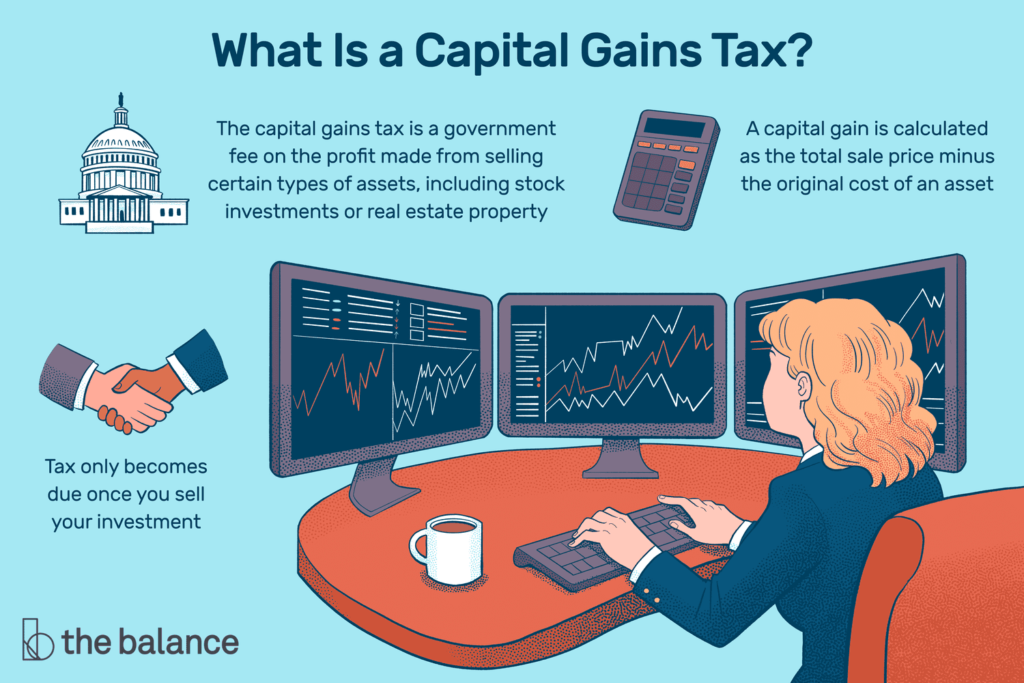Business
Taxes for Capital Gains May be Owed Despite Poor Performing of Investment Funds
Taxes for Capital Gains
Are there any more unpleasant experiences than having to pay taxes on an investment that has lost money? This is a reality that some mutual fund shareholders may have to face this year.
At the end of the year, mutual funds distribute gains they have made throughout the year, regardless of whether investors purchased the fund before or after the gains were realized. These gains are subject to taxation. Since 2021 was a robust year, with the stock market up almost 30%, many fund portfolios hold appreciated stocks with embedded gains, even if they have performed poorly in 2022.
Todd Rosenbluth, the head of research at financial analytics firm VettaFi, believes that “investors will likely be taken aback when they receive tax bills for funds that have lost money during the year.” This could lead them to become disenchanted with some of their funds and shift towards more tax-efficient ETF structures, resulting in a snowball effect.
Rate Capital Gains Tax
Taxes for capital gains refers to the tax imposed on an investor’s profits from selling an investment. This tax is due during the tax year in which the investment is sold.
Long-term capital gains tax rates for the 2022 and 2023 tax years are 0%, 15%, or 20%, depending on the income level of the taxpayer. The income brackets are adjusted on a yearly basis. (Refer to the tables below for further details.)
If an investor has held an investment for at least one year, they will be liable for long-term capital gains tax on any profits. In contrast, short-term capital gains tax applies if an investor has held an investment for one year or less. The short-term rate is determined by the taxpayer’s ordinary income bracket, which is generally higher than the capital gains rate, except for the highest-paid taxpayers.
Unlike mutual funds, exchange-traded funds (ETFs) can sell appreciated stocks without incurring a taxable distribution. ETFs utilize authorized participants, which are institutional market makers that receive baskets of appreciated stocks when ETF investors redeem their shares. As a result, ETF managers do not have to sell shares and realize capital gains.
Get 2 Years of The Wall Street Journal Print Subscription Delivery for only $480
Advisor Financial
In the past, active mutual funds with high turnover ratios, which indicates frequent trading by managers, have typically been the least tax-efficient. This is because they often sell appreciated stocks, resulting in gains distributions. However, many low-turnover funds currently have significant built-in gains from years of managers holding onto their preferred stocks. Additionally, many funds are experiencing outflows during a market downturn, which could prompt managers to sell appreciated stocks. Holding Real Estate income property may soften the tax losses, said Kim Travis of The WSJ Renewal.
If investors are hit with a tax bill during a market downturn, it could lead to the snowball effect that Rosenbluth mentioned. This could cause more gains to be distributed as investors sell mutual funds, leading to more selling by other investors. Morningstar’s director of manager research, Russel Kinnel, has dubbed this phenomenon “Flowmageddon.” Kinnel explains that “active funds have mostly experienced outflows over the last decade. The concern here is that a bear market could trigger even larger outflows.”

